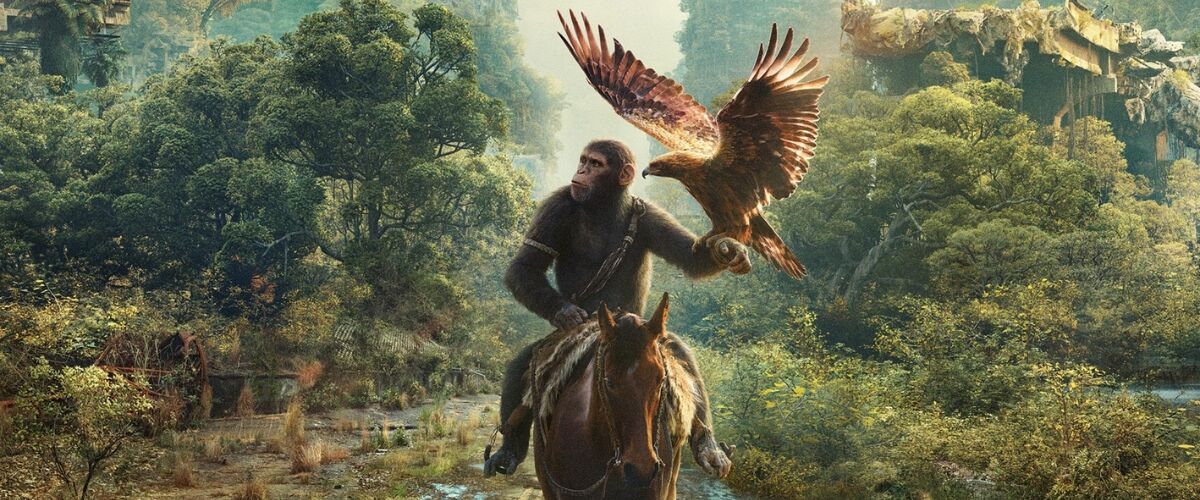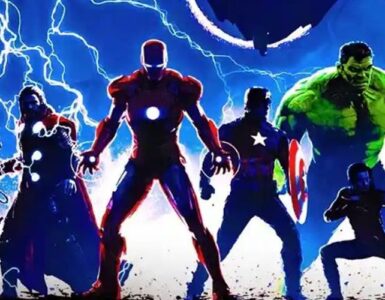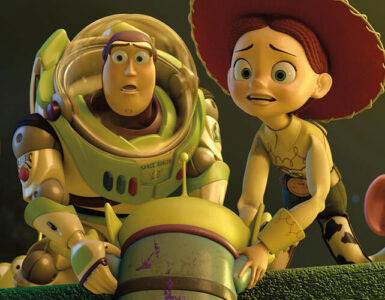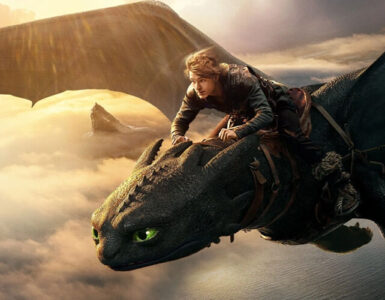Science fiction has always held a mirror to society, reflecting our anxieties and aspirations in fantastical settings. French author Pierre Boulle’s 1963 novel, La Planète des singes, offered a chilling vision of a world where apes surpassed humans as the dominant intelligent species and this provocative premise not only sparked the imagination across decades, it also birthed a massive entertainment franchise that addressed pressing societal issues through its blend of thrilling adventure and stark commentary on human folly.
The story’s cinematic journey began with the 1968 Charlton Heston-led adaptation by 20th Century Fox, which established a legacy of challenging viewers’ perceptions about society and their place within it. The Planet of the Apes franchise, much like the apes they feature, has evolved over the years, from its 1960s origins to a modern reimagining that brought hyper-realistic, CGI-enhanced simians to the silver screen. Directors Rupert Wyatt and Matt Reeves expanded the narrative in a cinematic reboot trilogy from 2011 to 2017, deepening the emotional and philosophical layers of the ape-human dynamic with a new take on the chimpanzee Caesar.
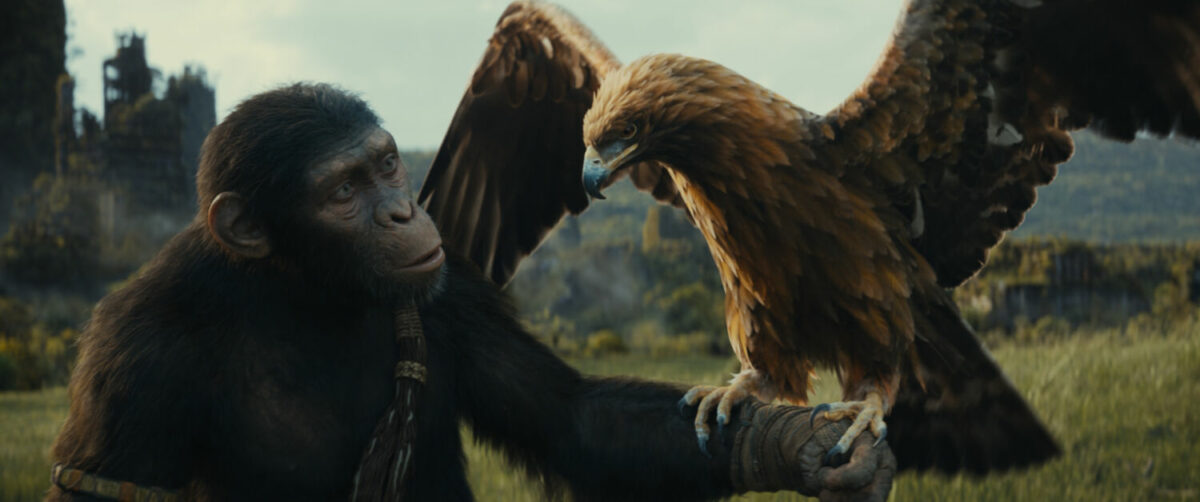
Adapting long-running franchises is a delicate balancing act, especially when following in the footsteps of beloved predecessors. Director Wes Ball, however, demonstrates an impressive aptitude for navigating these challenges with Kingdom of the Planet of the Apes, a new chapter in this sequel. His debut in the Maze Runner franchise showcased his ability to guide young talent in high-stakes, big-budget productions and here, he brings the same finesse to a world marked by the absence of the franchise’s biggest star – Andy Serkis’ portrayal of Caesar.
While the recent trilogy enjoyed the considerable star power of Serkis, Ball instead puts his trust in an ensemble of mostly fresh faces. Set several generations after 2017’s War for the Planet of the Apes, this new chapter explores a future where Caesar’s legacy casts a long shadow, as his teachings have become a double-edged sword, giving rise to ambition and tyranny embodied by Proximus Caesar (Kevin Durand), an ape leader who ruthlessly twists Caesar’s teachings in a relentless quest for dominance and lost human technologies.
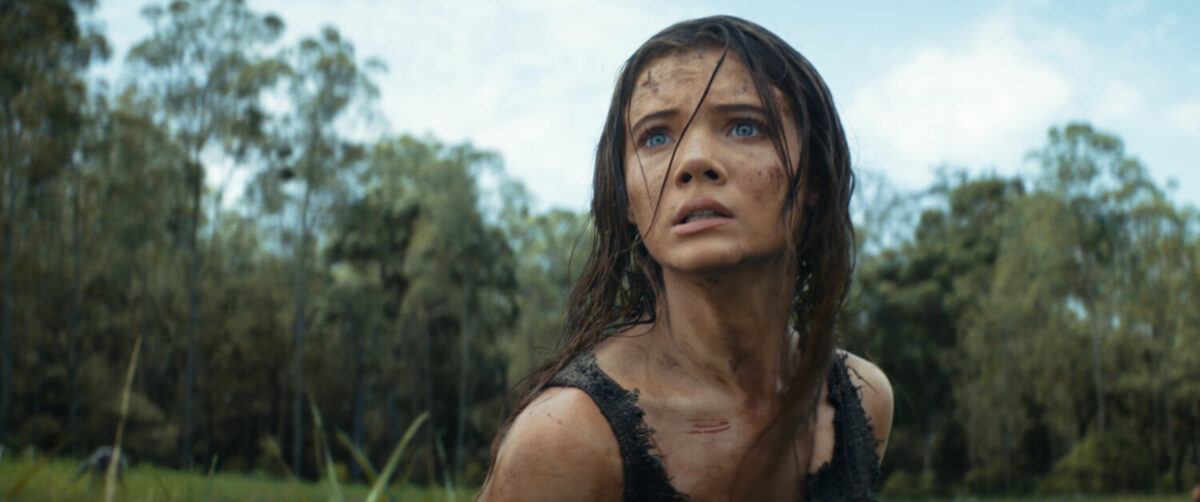
Amidst this upheaval, two figures emerge: Mae (Freya Allan), a resourceful human girl, and Noa (Owen Teague), a young, courageous chimpanzee. Their alliance defies expectations and is built upon mistrust, uncertainty and death, sparking a desperate journey through a world on the brink of a new era of conflict.
Drawing inspiration from Mel Gibson’s 2006 historical thriller Apocalypto, noted for its relentless action and rich storytelling set within the perilous jungles of early 1500s Yucatán, Ball infuses Kingdom of the Planet of the Apes with a similar raw, visceral intensity. Action sequences are pulse-pounding, showcasing both the primal strength of the apes and the desperate resilience of humans. Yet, it’s the film’s exploration of character and consequence that leaves a mark, with Teague’s Noa carrying the weight of Caesar’s legacy, grappling with leadership and the seductive pull of violence.
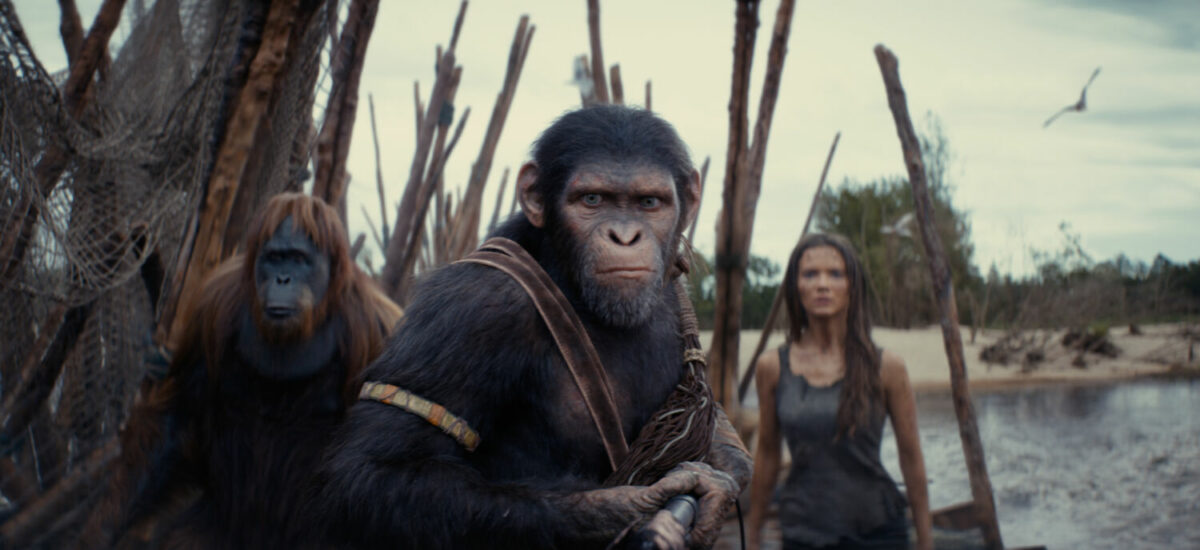
The It star delivers a powerhouse performance as the young chimpanzee, forming the heart of the movie. Echoing the young Caesar we met in 2011’s Rise of the Planet of the Apes, Teague’s Noa grapples with growing responsibilities and the quest for liberation, infusing his role with both wonder and determination. His character development and emotional trajectory enhance the narrative’s depth, making the film increasingly engaging as it unfolds.
Alongside Teague, Freya Allan shines as Mae, emerging as one of the film’s most intriguing characters. Allan captures the complexity of Mae, the mysterious young woman hunted by Proximus, forced to mature swiftly due to her traumatic past but still retaining the vulnerability inherent to her age. Audiences familiar with her role as Ciri in Netflix’s The Witcher will recognise her ability to convey inner strength and determination and here, she showcases these qualities through a unique lens of survival.
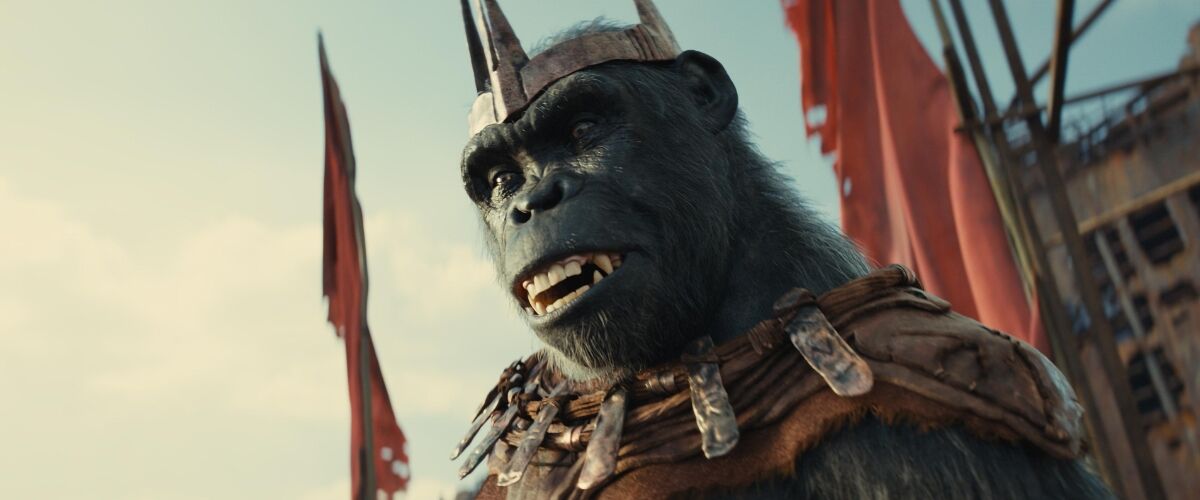
Stepping into the shoes of the new villain, Durand, known for villainous roles such as the cruel War Captain Frederick Gideon in Locke & Key and the vengeful angel Gabriel in Legion, excels in his role as Proximus, showcasing the ape’s relentless pursuit of power and knowledge. Durand’s commanding performance highlights his willingness to go to any lengths to secure the future of apekind though a deeper dive into his backstory and the warped perception of humanity that fuels his actions would have added further depth to the character.
Sadly, this sentiment extends to some members of the supporting cast who appear and quickly disappear. Peter Macon (The Orville) embodies Raka, the orangutan who is crucial for instilling a sense of peace and tolerance towards humans, as well as grounding the narrative through his mentorship of Noa. Macon and Teague share a delightful chemistry that infuses the film with humour and warmth but a more substantial presence for Raka would have further enriched the narrative. Additionally, the underutilisation of William H. Macy, an Emmy award-winning actor with a significant screen presence in Shameless, Fargo, and Jurassic Park III, is felt throughout the film, leaving audiences desiring more from his performance.
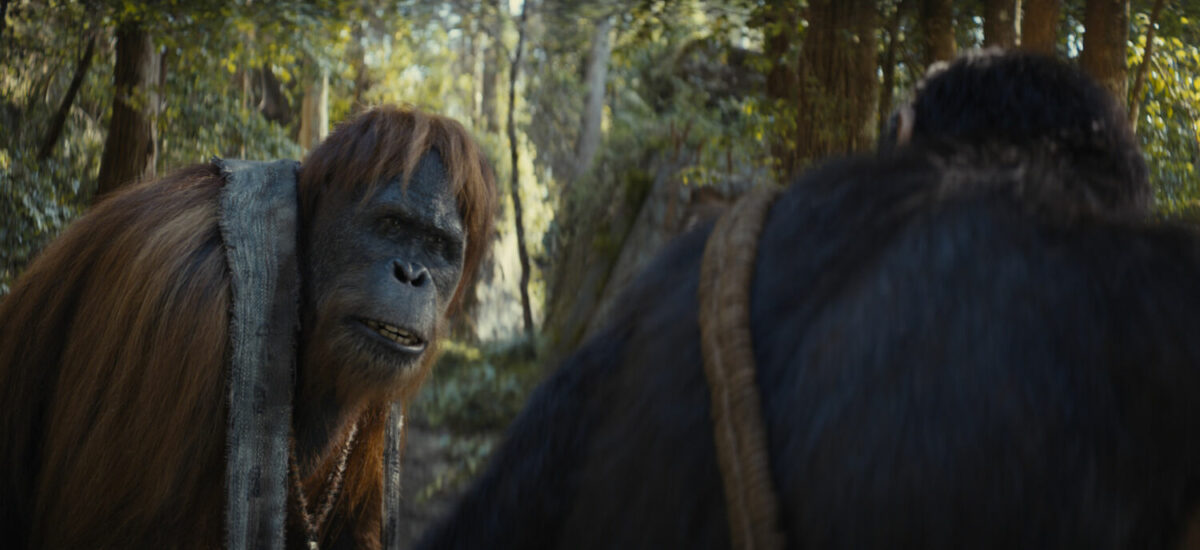
Despite a talented cast, the film’s start is somewhat burdened by exposition. The first act leans heavily on extensive exposition and worldbuilding to establish this new world, which drags down the initial pacing. Once the narrative groundwork is laid out, the film accelerates into a gripping second act filled with suspenseful fight sequences and effectively uses its musical score to heighten tension and anticipation of forthcoming events. A particularly memorable scene mirrors the human-hunt sequence from the 1968 original, complete with a river-rapids chase, drawing a direct line through the franchise’s history.
Visually, Kingdom of the Planet of the Apes is a feast for the eyes. Crafted by Peter Jackson’s Wētā FX – known for their work on Godzilla x Kong: The New Empire and Avatar: The Way of Water – surpass those seen in the earlier trilogy. Director Ball’s background as a VFX artist in the 2011 romantic comedy Beginners also lends a keen eye to the technical aspects of the film, ensuring the spectacle doesn’t overshadow the emotional core of the story.
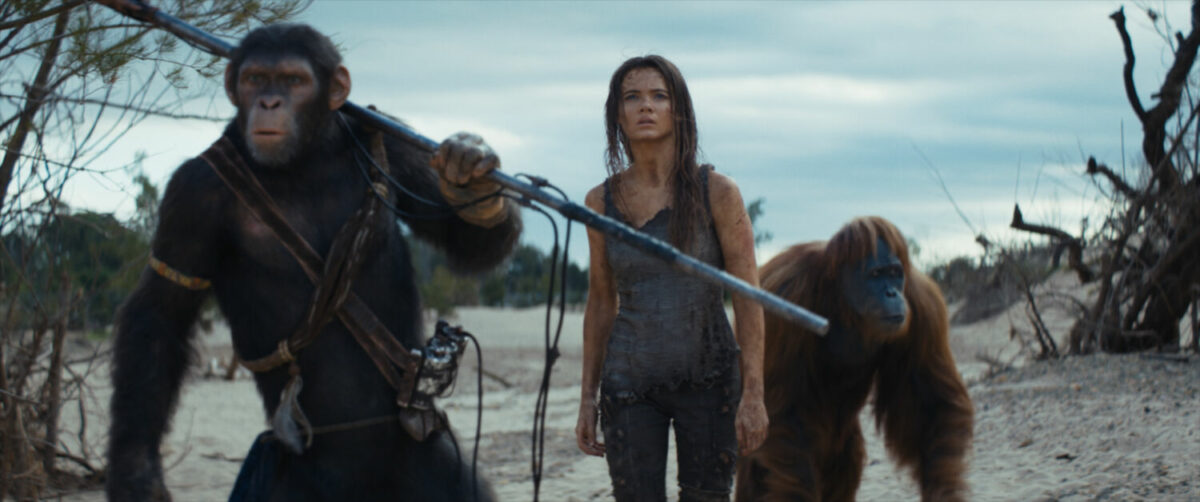
As the dust settles and the final images fade, it’s clear that the studio wants another trilogy and then some. The film extends the narrative by making several reveals towards the end and while not revelationary, it begs for more to be revealed. Where is Mae from, and how has her kind of intelligent human lived and survived for the last three centuries, and know how to operate machinery from a time long past? How has electricity managed to remain dormant in a human facility after so long, and won’t gunpowder and its related weapons break down after 300 years?
Still, it’s an ending crackling with potential, and a testament to the enduring power of the franchise, with a demand for a sequel that feels almost primal.
Kingdom of the Planet of the Apes opens in Singapore cinemas on 9 May.
GEEK REVIEW SCORE
Summary
Kingdom of the Planet of the Apes offers a thrilling, if at times rather illogical continuation of the iconic franchise but Wes Ball does enough to jump off the foundation from the previous trilogy, without relying too much on it for his new take in the franchise.
Overall
7.6/10-
Story - 7/10
7/10
-
Direction - 8/10
8/10
-
Characterisation - 8/10
8/10
-
Geek Satisfaction - 7.5/10
7.5/10

